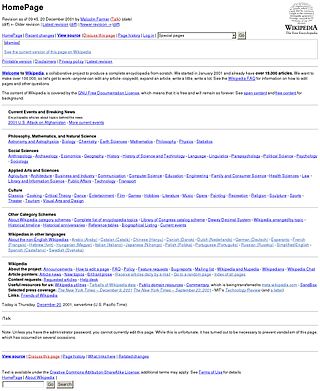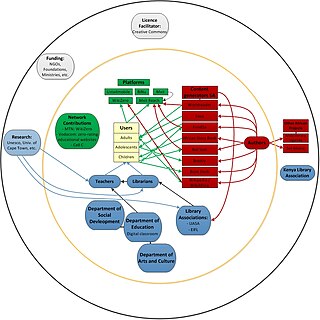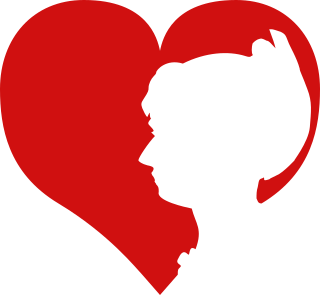
An encyclopedia or encyclopaedia is a reference work or compendium providing summaries of knowledge, either general or special, in a particular field or discipline. Encyclopedias are divided into articles or entries that are arranged alphabetically by article name or by thematic categories, or else are hyperlinked and searchable. Encyclopedia entries are longer and more detailed than those in most dictionaries. Generally speaking, encyclopedia articles focus on factual information concerning the subject named in the article's title; this is unlike dictionary entries, which focus on linguistic information about words, such as their etymology, meaning, pronunciation, use, and grammatical forms.

Wikipedia, a free-content online encyclopedia written and maintained by a community of volunteers known as Wikipedians, began with its first edit on 15 January 2001, two days after the domain was registered. It grew out of Nupedia, a more structured free encyclopedia, as a way to allow easier and faster drafting of articles and translations.

The Oxford Internet Institute (OII) serves as a hub for interdisciplinary research, combining social and computer science to explore information, communication, and technology. It is an integral part of the University of Oxford's Social Sciences Division in England.

Geotagging, or GeoTagging, is the process of adding geographical identification metadata to various media such as a geotagged photograph or video, websites, SMS messages, QR Codes or RSS feeds and is a form of geospatial metadata. This data usually consists of latitude and longitude coordinates, though they can also include altitude, bearing, distance, accuracy data, and place names, and perhaps a time stamp.

The free online encyclopedia Wikipedia has been criticized since its creation in 2001. Most of the criticism has been directed toward its content, community of established volunteer users, process, and rules. Critics have questioned its factual reliability, the readability and organization of its articles, the lack of methodical fact-checking, and its political bias. Concerns have also been raised about systemic bias along gender, racial, political, corporate, institutional, and national lines. Conflicts of interest arising from corporate campaigns to influence content have also been highlighted. Further concerns include the vandalism and partisanship facilitated by anonymous editing, clique behavior, social stratification between a guardian class and newer users, excessive rule-making, edit warring, and uneven policy application.

The Reliability of Wikipedia and its user-generated editing model, particularly its English-language edition, has been questioned and tested. Wikipedia is written and edited by volunteer editors, who generate online content with the editorial oversight of other volunteer editors via community-generated policies and guidelines. The reliability of the project has been tested statistically through comparative review, analysis of the historical patterns, and strengths and weaknesses inherent in its editing process. The online encyclopedia has been criticized for its factual unreliability, principally regarding its content, presentation, and editorial processes. Studies and surveys attempting to gauge the reliability of Wikipedia have mixed results. Wikipedia's reliability was frequently criticized in the 2000s but has been improved; it has been generally praised in the late 2010s and early 2020s.
Translators without Borders (TWB) is a non-profit organization set up to provide translation services for humanitarian non-profits. It was established in 2010 as a sister organization of Traducteurs Sans Frontières, founded in 1993 by Lori Thicke and Ros Smith-Thomas. As of 2012, it had about 1600 vetted volunteer translators. TWB's objective is to address language disparities that impede crucial humanitarian efforts. They aim to accomplish this by facilitating collaboration between non-profit humanitarian entities and a volunteer community of translators.

The following outline is provided as an overview of and topical guide to Madagascar:
Wikipedia has been studied extensively. Between 2001 and 2010, researchers published at least 1,746 peer-reviewed articles about the online encyclopedia. Such studies are greatly facilitated by the fact that Wikipedia's database can be downloaded without help from the site owner.

MicrosoftEncarta is a discontinued digital multimedia encyclopedia published by Microsoft from 1993 to 2009. Originally sold on CD-ROM or DVD, it was also available online via annual subscription, although later articles could also be viewed for free online with advertisements. By 2008, the complete English version, Encarta Premium, consisted of more than 62,000 articles, numerous photos and illustrations, music clips, videos, interactive content, timelines, maps, atlases and homework tools.

The Wikipedia online encyclopedia has, since the late 2000s, served as a popular source for health information for both laypersons and, in many cases, health care practitioners. Health-related articles on Wikipedia are popularly accessed as results from search engines, which frequently deliver links to Wikipedia articles. Independent assessments have been made of the number and demographics of people who seek health information on Wikipedia, the scope of health information on Wikipedia, and the quality and reliability of the information on Wikipedia.
In geographic information systems, toponym resolution is the relationship process between a toponym, i.e. the mention of a place, and an unambiguous spatial footprint of the same place.
The GESIS – Leibniz Institute for the Social Sciences is the largest German infrastructure institute for the social sciences. It is headquartered in Mannheim, with a location in Cologne. With basic research-based services and consulting covering all levels of the scientific process, GESIS supports researchers in the social sciences. As of 2017, the president of GESIS is Christof Wolf.

Gender bias on Wikipedia is a term used to describe various gender-related disparities on Wikipedia, particularly the overrepresentation of men among both volunteer contributors and article subjects, as well as lesser coverage of and topics primarily of interest to women.

Mobile literacy in South Africa refers to informal education initiatives that support literacy and digital fluency using mobile devices, especially mobile phones. It is also known by the abbreviation mLiteracy.

Media pluralism defines the state of having a plurality of voices, opinions, and analyses in media systems or the coexistence of different and diverse types of medias and media support.

AfroCrowd is an initiative to create and improve information about Black culture and history on Wikipedia. The New York City-based project was founded by Alice Backer in 2015.

Women in Red is a WikiProject addressing the current gender bias in Wikipedia content. The project focuses on creating content regarding women's biographies, women's works, and women's issues.
Ideological bias on Wikipedia, especially in its English-language edition, has been the subject of academic analysis and public criticism of the project. Questions relate to whether its content is biased due to the political, religious, or other ideologies its volunteer editors may adhere to. These all draw concerns as to the possible effects this may have on the encyclopedia's reliability.

There are various intersections of the LGBT community and Wikipedia. LGBT people who edit the online encyclopedia often face cyberbullying and other types of harassment. Wikipedia content about LGBT individuals is often vandalized, but various Wikipedia user groups, WikiProjects, and the Wikimedia Foundation endorse campaigns to promote inclusion on Wikipedia. Availability of Wikipedia's LGBT content, in countries that otherwise suppress information about LGBT issues, has been praised.














